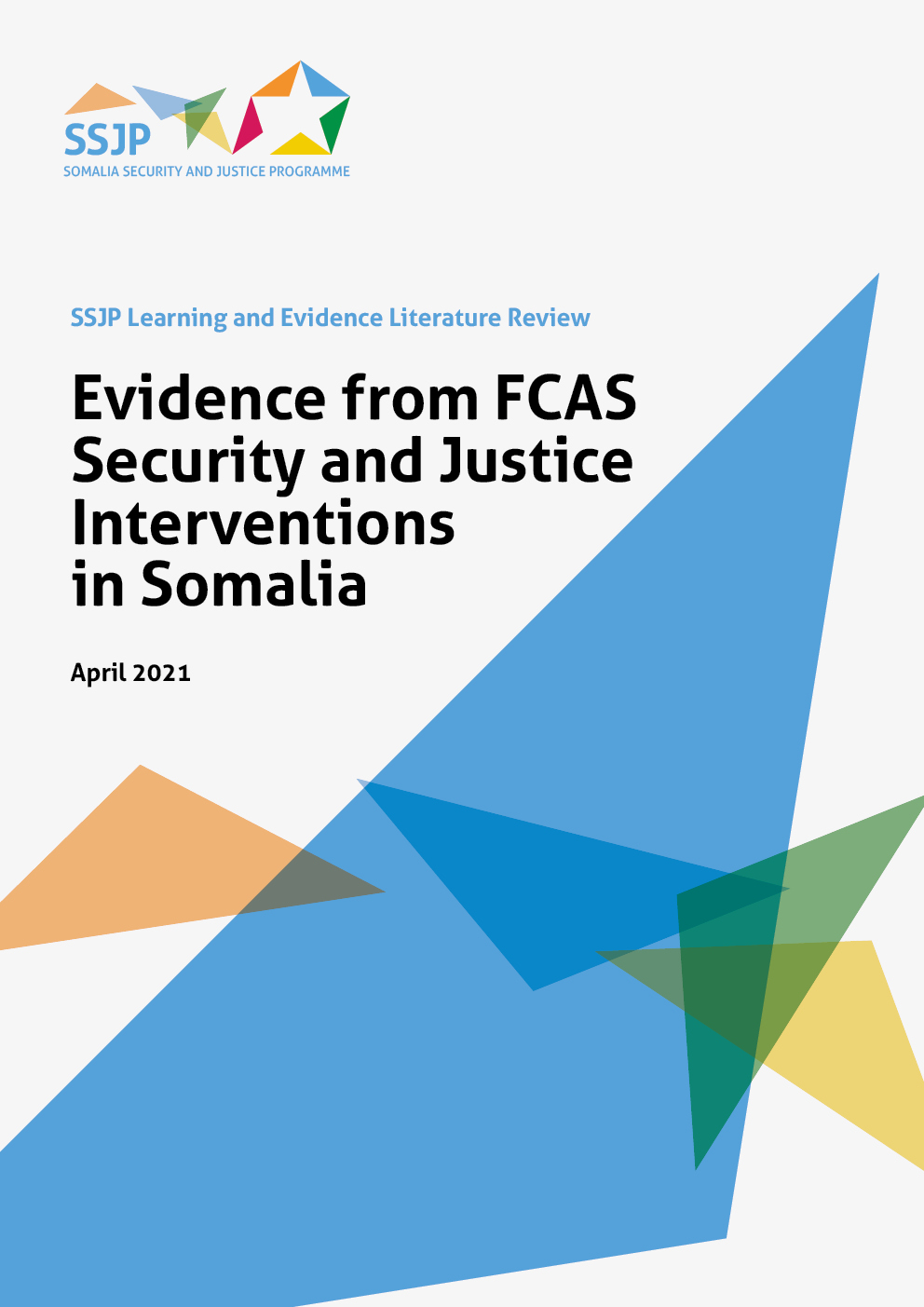There is limited evidence for what works in security and justice programming in Somalia and what does exist is generally of medium or low quality. Interventions showing some effectiveness can be considered promising, but limitations relate to the small scale of the programming, limited sustainability, and significant resistance. There are few independent studies exploring the effect of donor interventions in Somalia. Evidence of less effective interventions include those that have been top-down, state-centric, or overly ambitious in their approach. There is almost no evidence showing longer-term impact of security and justice interventions in Somalia.
Findings from the literature review include:
- The hybrid order of security and justice in the Somali context, characterised by overlapping authorities and remits is a reality that donors must work with.
- Customary practices may be effective in managing conflict within/between communities but often at the expense of individual rights.
- Customary practices tend to disadvantage women and those who are often marginalised the most
- Somali citizens have complex and, at times, contradictory perceptions of security and justice providers, practices, and priorities.

